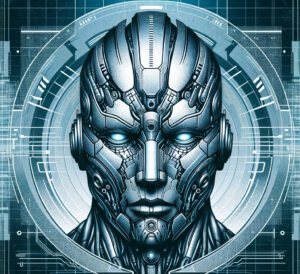Introduction: Wakanda – A Vision of Africa’s Future
Marvel’s Black Panther, directed by Ryan Coogler, is a groundbreaking film that presents a unique vision of Africa through the fictional nation of Wakanda. The film’s portrayal of Wakanda as a technologically advanced society hidden from the rest of the world has captivated audiences and sparked discussions about Africa’s potential and representation in media. But how much of Wakanda is based on reality, and how much is pure fiction?
The Realism of Wakanda: Science and Culture
Wakanda’s portrayal in Black Panther is a mix of science fiction, African cultural elements, and futuristic technology. The film draws upon real African traditions, languages, and landscapes to create a setting that feels both authentic and fantastical.
1. Vibranium and Wakandan Technology:
- Fact: While vibranium, the powerful metal that powers Wakanda’s technology, is fictional, it represents the potential of natural resources to transform societies. Africa is rich in minerals like gold, diamonds, and coltan, which are critical for modern technology.
- Fiction: Vibranium’s properties, such as its ability to absorb and release kinetic energy, are pure science fiction. The idea of a single resource powering an entire nation’s technology is a metaphor for how Africa’s natural resources could be harnessed for development, but it is not scientifically feasible.
2. African Cultural Influences:
- Fact: Wakanda’s culture is a blend of various African traditions. The costumes, language (Xhosa), and rituals depicted in the film are inspired by real African cultures. For example, the Dora Milaje’s attire draws from the Maasai, while the lip plates worn by the River Tribe are similar to those used by the Mursi people of Ethiopia.
- Fiction: While Black Panther celebrates African culture, it does so through a fictional lens. Wakanda is a utopian vision of what Africa could be without the historical impacts of colonization, which is a powerful but fictional narrative.
Fictional Elements in Wakanda: Where the Movie Takes Liberties
As a superhero film set in a fantastical universe, Black Panther inevitably includes elements that stretch the bounds of reality. These fictional aspects contribute to the film’s epic and otherworldly atmosphere.
1. Wakanda’s Hidden Society:
- Fiction: The idea of a hidden, technologically advanced nation existing in isolation is a compelling narrative, but it is highly implausible. In reality, no country could develop such advanced technology without interacting with the global community. The notion serves as a critique of how Africa’s potential has been overlooked and hidden from the world due to historical and geopolitical factors.
- Fact: The secrecy and self-sufficiency of Wakanda reflect the resilience and resourcefulness of many African nations that have thrived despite external challenges.
2. The Heart-Shaped Herb and the Black Panther:
- Fiction: The heart-shaped herb, which grants superhuman abilities to the Black Panther, is a fictional element rooted in comic book mythology. There is no known plant that can provide such powers. This element of the story adds to the mystical and legendary status of the Black Panther.
- Fact: The use of plants and herbs for medicinal purposes is deeply rooted in African traditions. While the heart-shaped herb is fictional, it symbolizes the reverence for nature and the healing knowledge passed down through generations.
The Cultural Impact of Black Panther: Why It Matters
1. Representation and Inspiration:
- Fact: Black Panther has been hailed for its positive representation of African culture and people of African descent. The film’s success has inspired a new generation of filmmakers, artists, and activists to explore African stories and challenge stereotypes. Wakanda has become a symbol of African excellence and potential.
- Fiction: While Wakanda is a fictional place, it serves as a powerful narrative tool to reimagine Africa’s future and challenge the dominant narratives of poverty and conflict that have long overshadowed the continent’s rich history and potential.
2. Technological Utopia:
- Fact: Black Panther presents a vision of what Africa could achieve with advanced technology and innovation. This resonates with real-world initiatives across the continent, such as the growing tech hubs in Kenya and Nigeria. The film’s depiction of Wakanda as a leader in technology and science reflects the aspirations of many African nations.
- Fiction: The level of technological advancement depicted in Wakanda, such as holographic communication and anti-gravity trains, is far beyond current capabilities. However, these elements serve as a metaphor for the boundless possibilities of African innovation.
Conclusion: Black Panther—A Blend of Myth, Science, and Fantasy
Black Panther is a film that masterfully blends elements of African culture, science, and fantasy to create a compelling narrative that resonates with audiences worldwide. While Wakanda is a fictional place, it is grounded in real-world concepts and traditions that give it a sense of depth and authenticity. The film’s cultural impact is undeniable, offering a new perspective on Africa and its potential. As we continue to explore the possibilities of technology and innovation, Black Panther serves as both an entertaining story and a reminder of the wonders—and the unknowns—that lie within the continent.
